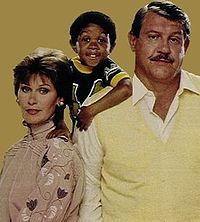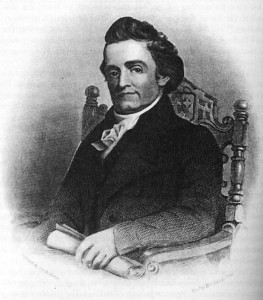October 16.
October 16th is Dictionary Day in honor of Webster’s birthday.

Wrong Webster.

That’s better.
“On the first of May will be opened…a school, in which children may be instructed, not only in the common arts of reading, writing, and arithmetic, but in any branch of academic literature.
“The little regard that is paid to the literary improvement of females…and the general inattention to the grammatical purity and elegance of our native language, are faults in the education of youth that more gentlemen have taken pains to censure than to correct…”
–Noah Webster, April 16, 1782
Across the Atlantic, the English Parliament was just voting to end the war in America when Noah Webster, a 24 year-old Yale grad and veteran of the Connecticut Militia, posted his notice. He had earned a law degree the year before, but the post-war economy was in such bad shape that no one could afford a lawyer. So he tried his hand at teaching.
His mission to ensure the literacy of Americans became a life-long passion, as did his belief that this new country required its own distinct standards of spelling. He printed his first Speller for children in 1783. The Speller became an irreplaceable teaching tool due to Webster’s keen understanding of how children learned language at different stages.
During his lifetime, he earned far more from the Speller than from his dictionaries. The Speller sold millions of copies, and was acknowledged as a considerable force for maintaining the unity of Americans through language.
His Compendious Dictionary of the English Language was published in 1806. In it, Webster created a uniquely American way of spelling. With words such as center, harbor and program, instead of centre, harbour and programme.
In 1828, at age 70, he published his masterpiece: American Dictionary of the English Language. It contained over 70,000 entries, but sold only 2,500 copies. Webster was forced to mortgage his house to complete the second edition, which was released in 1840.
After his death in 1843, George and Charles Merriam purchased the rights to the dictionary and expanded it. The expanded “Unabridged” dictionary became the undisputed American authority on the English language for over a hundred years.

